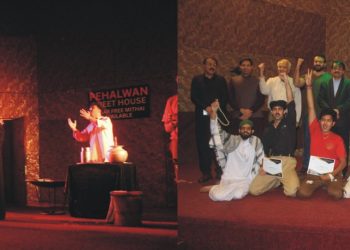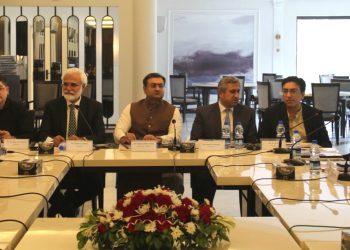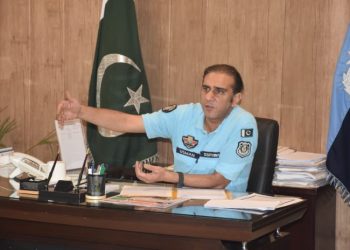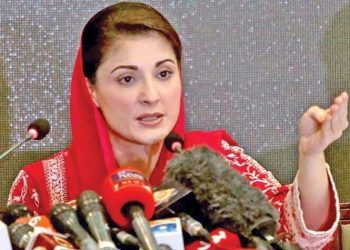ISLAMABAD, Nov 22 (NNI): The Centre for Strategic Perspectives (CSP) at the Institute of Strategic Studies Islamabad (ISSI) in collaboration with Hanns Seidel Foundation (HSF) organised a Seminar titled, “Regional Cooperation on Climate Change in South Asia” on Tuesday.
Ambassador Shafqat Kakakhel, Chairperson BoG, SDPI, was the Keynote Speaker for the event and other discussants included: Dr. Philipp Johannes Zehmisch, South Asia Institute of the University of Heidelberg; Dr. Shailly Kedia, Associate Director, TERI, Delhi, India; Dr. Imran Khalid, Director, Governance and Policy, WWF; Mr. Ali Tauqeer Sheikh, Advisor, Ministry of Planning Pakistan; Ms. Aisha Khan, Executive Director for Civil Society Coalition for Climate Change; Ms. Anam Rathor, Technical Advisor Climate Finance, GIZ; Dr. Rezaur Rahman, Institute of Water and Flood Management, BUET; and Dr. Steffen Kudella, Country Director, HSF, Pakistan.
In her introductory remarks Dr. Neelum Nigar, Director, CSP, welcomed the guests and outlined the aim and structure of the conference.
While in his welcome remarks Ambassador Aizaz Ahmad Chaudhry, Director General, ISSI, said that COP 27 has produced a reasonable outcome in terms of damage assessment but needs lot of work. South Asian countries need to work together to face Non-traditional challenges and come up with suitable mitigating strategies.
Similarly, Dr. Kudella, in his remarks said that recent floods in the region have highlighted the importance of work on Non-traditional challenges in the South Asian region.
The Keynote Speaker, Ambassador Kakakhel in his address said that South Asian region is vulnerable to Climate change and UN IPCC reports have identified these challenges. The region is frequented by climate induced calamities still different agreements under the SAARC on Climate have not been implemented due to lack of political will.
In the first session on climate diplomacy, Dr. Philipp Johannes Zehmisch said that lack of funds was impacting Pakistan’s Climate change performance. Climate change is an all-encompassing area from disaster relief to mitigation. It is important for the countries in the region to work on green energy initiatives.
The second speaker, Dr. Shailly Kedia said that decoupling of political differences important to tackle Climate change issue in the region. Climate diplomacy needs to be driven by science and its paradigm needs to shift from countries to people. The third speaker of the session.
Ali Tauqeer Sheikh said that there are different methods of tackling the issue of Climate diplomacy. The leadership in South Asia had the vision to put programs together to deal with climate issues but implementation has not been possible due to lack of adequate resources. Climate diplomacy can help in implementation of action plans developed through negotiations between the various stakeholders.
The second session focused on climate financing and the speaker Ms. Aisha Khan said that loss and damage fund put forward at COP 27 is very vague. External finance is the only requisite to deal with Climate change and address adaptation and mitigation issues. Principle of equity should be respected when countries talk about climate finance.
















